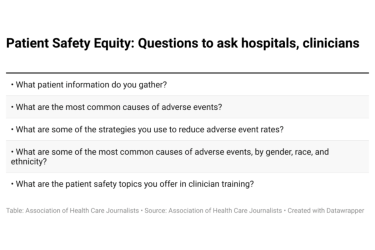
Health journalists in Washington, D.C., participated in an all-day training session about reporting on the opioid crisis, hearing from treatment experts, medical providers and public health advocates.
The event took place Feb. 23 at the University of Maryland’s Philip Merrill College of Journalism, and was a partnership between the D.C. chapter of the Association of Health Care Journalists and the National Press Foundation.
Speakers included Dr. Caleb Alexander, epidemiology expert at the Johns Hopkins Bloomberg School of Public Health; John Auerbach, president and CEO for the nonprofit Trust for America’s Health; Dr. Jay Butler, chief medical officer at the Alaska Department of Health and Social Services; Benjamin F. Miller, chief policy officer for the Well Being Trust; Dr. Karen Remley, American Academy of Pediatrics CEO; and Dr. Leana Wen, Baltimore’s health commissioner.
Forty-three reporters attended the training, in which experts discussed drugs that are being used to treat addiction, how the epidemic is impacting children, and other areas of drug or alcohol addiction that have been affected. Officials detailed ways that they work to distribute naloxone to patients and how they connect them to treatment.
Experts said that doctors needed to be more judicious about prescribing opioids and that the stigma associated with addiction can be a barrier to patients’ seeking care.
They shared personal anecdotes of working in emergency departments and said a wide-ranging approach would be necessary to make a dent in addressing rates of deaths and addiction.
The opioid crisis has resulted in more than 42,000 deaths from overdoses on drugs such as heroin, fentanyl and prescription painkillers. Members of Congress are working on funding and legislation to address it, and the Trump administration has said that reversing the pattern of addiction and overdose is a top priority.
The following resources were provided by the speakers:
- Prevention and Treatment of Opioid Abuse, Dr. Caleb Alexander of Johns Hopkins
- Impact on Families and Children, Dr. Karen Remley, American Academy of Pediatrics:
- Opioids Statistics/Demographics, John Auerbach of Trust for America’s Health and Benjamin Miller of Well Being Trust
- Front Lines of the Epidemic, Baltimore public health commissioner Dr. Leana Wen
- Strategies that Work to Combat Opioids, by Dr. Jay Butler, chief medical officer at the Alaska Department of Health and Social Services and immediate past president of ASTHO
- Video of Wen’s presentation








